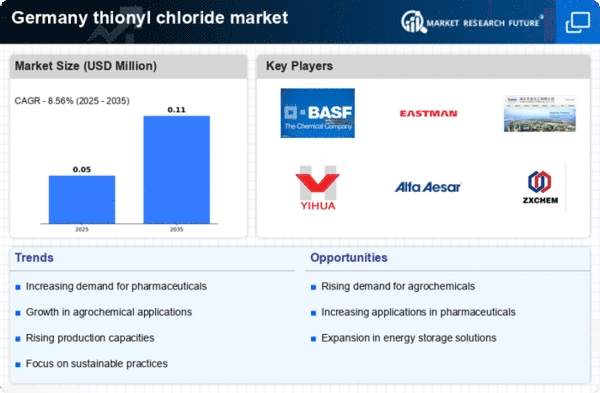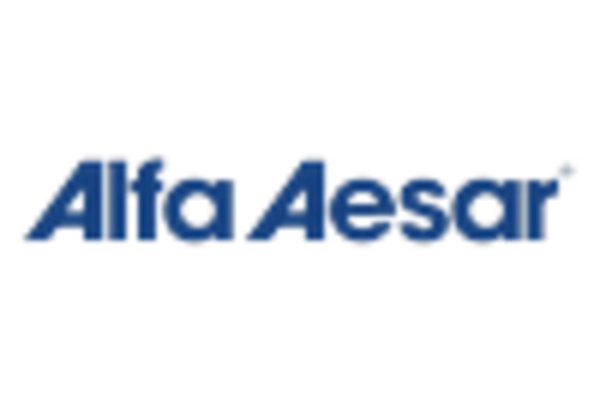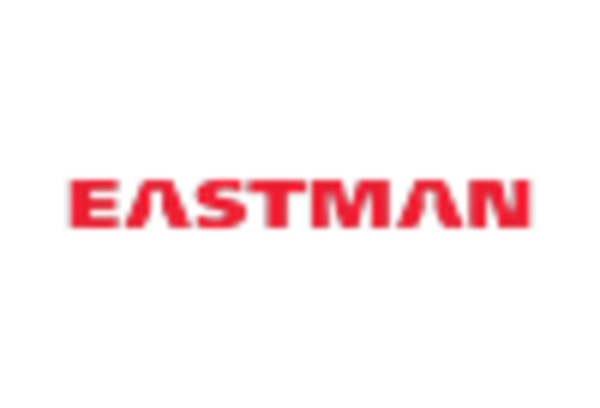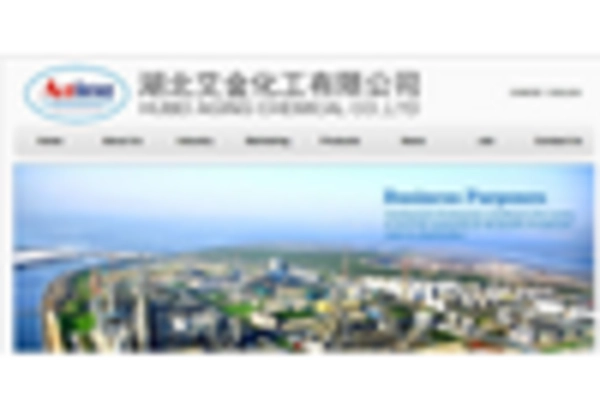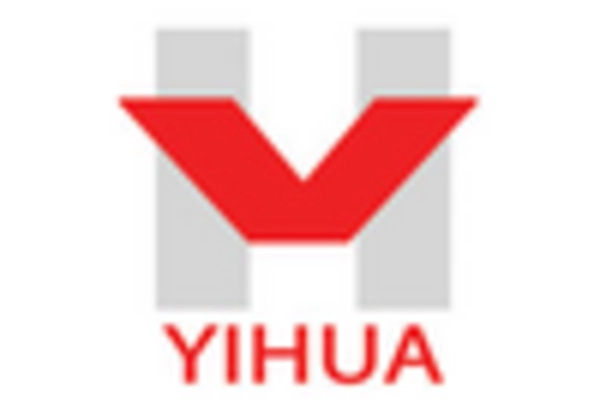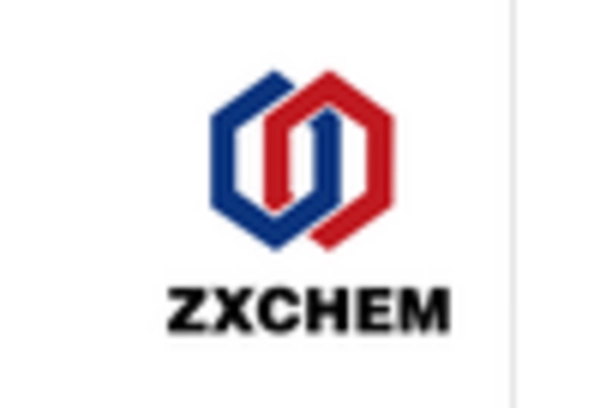The thionyl chloride market exhibits a competitive landscape characterized by a blend of established players and emerging companies, driven by increasing demand in pharmaceuticals, agrochemicals, and specialty chemicals. Key growth drivers include the rising need for efficient chemical synthesis and the expansion of end-use industries. Major companies such as BASF SE (DE), Eastman Chemical Company (US), and Merck KGaA (DE) are strategically positioned to leverage their extensive R&D capabilities and global supply chains. Their operational focus on innovation and sustainability initiatives appears to shape the competitive environment, fostering a landscape where technological advancements and eco-friendly practices are paramount.In terms of business tactics, companies are increasingly localizing manufacturing to enhance supply chain efficiency and reduce lead times. The market structure is moderately fragmented, with a mix of large multinational corporations and smaller regional players. This fragmentation allows for diverse competitive strategies, as key players like Hubei Guke Chemical Co Ltd (CN) and Hubei Yihua Chemical Industry Co Ltd (CN) focus on cost leadership and regional market penetration, thereby influencing pricing dynamics and market accessibility.
In October BASF SE (DE) announced a strategic partnership with a leading technology firm to develop sustainable production methods for thionyl chloride. This collaboration is expected to enhance BASF's operational efficiency and reduce its carbon footprint, aligning with global sustainability goals. The strategic importance of this move lies in its potential to position BASF as a leader in eco-friendly chemical production, appealing to environmentally conscious consumers and regulatory bodies alike.
In September Eastman Chemical Company (US) expanded its production capacity for thionyl chloride at its facility in Germany. This expansion is indicative of Eastman's commitment to meeting the growing demand in the European market. By increasing capacity, Eastman aims to strengthen its market position and ensure a reliable supply for its customers, which could enhance customer loyalty and market share in a competitive landscape.
In August Merck KGaA (DE) launched a new line of thionyl chloride derivatives aimed at the pharmaceutical sector. This product innovation reflects Merck's focus on R&D and its strategy to diversify its product offerings. The introduction of these derivatives is likely to cater to specific customer needs, thereby enhancing Merck's competitive edge and reinforcing its reputation as a leader in specialty chemicals.
As of November current competitive trends in the thionyl chloride market are increasingly defined by digitalization, sustainability, and the integration of AI technologies. Strategic alliances among key players are shaping the landscape, fostering innovation and collaborative approaches to market challenges. The shift from price-based competition to a focus on technological advancement and supply chain reliability is evident, suggesting that future competitive differentiation will hinge on the ability to innovate and adapt to evolving market demands.


